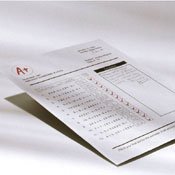Wednesday, April 13, 2011
The Mississippi House of Representatives is becoming as politically polarized as the Mississippi Senate, says political and community activist Rims Barber. Barber released a 2011 political report card grading legislators based on their votes for up to 10 progressive bills that writhed their way through the 2011 legislative session before it adjourned this month.
Barber, a minister who came to the state in 1964 at the request of the National Council of Churches to help with civil-rights work during the historic Freedom Summer campaign, regularly advocates for a variety of progressive issues at the State Capitol.
His annual report card classifies legislators based on their support or opposition to certain bills. His Senate report-card findings stem from votes on bills like SB 2179, which, if it had passed, mandated that local and state law enforcement demand proof of residency from people police suspect of being undocumented residents.
Another bill is SB 2289, which transfers financial penalties for open-meeting violations to individual violators rather than the public body the violator represents. Barber also includes SB 2570, which removes state employees from the protection of the state personnel board for two years and classifies employees as "non-state service" personnel.
Barber said he had to be picky in selecting bills. Both chambers tend to vote unanimously or nearly unanimously on the vast majority of bills that hit their floors.
"These are bills that didn't pass 120-to-nothing," Barber said.
"I look for vote splits, because 120-to-nothing doesn't tell us anything."
Controversial bills, he said, tend to be civil- and human-rights bills and amendments, including education, and workers' and voters' rights issues.
The grading scale ranges from "A" to "F," with an "A" representing a favorable vote for the legislation and an "F" for an unfavorable vote. Votes are not based on a "yeas" or "nays." A legislator can vote to oppose a regressive bill, such as SB 2055, which restricts voter assistance, and get a "good vote" classification.
Senators and House members may vote a variety of ways on the bills, earning them an in-between score of C, B, or D. Barber noted last year that the Senate scale consisted mostly of an extreme collection of As and Fs, with little variance, while the House report card contained a wider scale of Bs, Cs and Ds.
That's not the case this year. While the Senate remains as polarized as it was last year, the House is gravitating toward the same divided stance with a series of As and Fs, and little else. Most politicians either completely supported all bills or utterly rejected them all. They rarely supported or rejected just a few. Mostly, he said, it was all or nothing.
"My guess is that the answer is called (Gov.) Haley Barbour," Barber said. "There's always been this kind of pattern, but not as stark as it is this year. (Barbour's) got a big war chest out there, and he's been known to say, 'If you don't vote with me, I'll find a candidate to run against you who will.'"
Many legislators, Barber added, do not personally advocate comparably extremist notions while in private company.
"Some of these legislators are really nice guys when they're out by themselves," Barber said. "I've have really intelligent conversation one-on-one with some of them over a cup of coffee or in their office, but then they get in a group, and they just go to hell."
Rep. Greg Snowden, R-Meridian, said he noticed the polarization in the House, as indicated by the Business and Industry Political Education Committee legislative scorecard. "I think that when you have a House that elected a speaker by such a close vote, you'll have pretty stark dividing lines," Snowden said. "That doesn't mean there are not gray areas in the way people think, but we don't have a 'maybe' on our voting board. It's either green or red."
Snowden said the governor was not the source of the partisanship in the House.
"Partisanship in the House has more been our doing, but that's not necessarily a bad thing," Snowden said. "When I first got here, it was a go-along, get-along kind of system where you scratch my back, and I scratch yours. But now, with the two-party system, if you have an R or D by your name (voters) expect it to mean something in Jackson, and that's caused some friction."
Comment at http://www.jfp.ms.

Comments
Use the comment form below to begin a discussion about this content.
Sign in to comment
Or login with:
OpenID